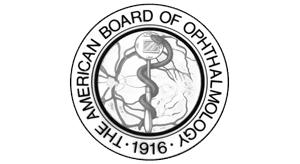This presentation was recorded at the 2024 TED Patient Forum: Overcoming Thyroid Eye Disease Presented by Kahana Oculoplastic & Orbital Surgery June 30, 2024 | Novi, Michigan
Dr. Hunter Underwood, MD
Assistant Professor, Division of Endocrine Surgery, University of Michigan
Dr. Hunter Underwood is an assistant professor in the Division of Endocrine Surgery at Michigan Medicine. He completed his general surgery residency at NYU Langone Health and an AAES Endocrine Surgery Fellowship at Michigan Medicine. Dr. Underwood specializes in endocrine surgery, including thyroid, parathyroid, and adrenal procedures, with a particular interest in improving endocrine surgery education to enhance patient outcomes.
Summary
Early Surgery Benefits: Early thyroidectomy is recommended to prevent thyroid eye disease from worsening and to stabilize thyroid function more rapidly. It also tends to result in fewer complications compared to delayed surgery.
Risks and Complications: Risks include bleeding, infection, voice changes due to nerve damage, and calcium regulation issues due to parathyroid gland damage. These risks are higher in patients with Graves’ disease.
Thyroid Function Prior to Surgery: Previously, perfectly controlled thyroid levels were deemed necessary before surgery to avoid complications. Recent studies indicate that even patients with uncontrolled thyroid levels can safely undergo surgery if performed by an experienced surgeon.
Surgical Procedure: The surgery typically results in a visible scar and requires a one-night hospital stay. Recovery is straightforward, with a recommendation to avoid strenuous activity for two weeks and most patients returning to work in one week.
Surgeon Experience: It is crucial to choose a surgeon who specializes in thyroid surgeries, as high-volume surgeons and hospitals tend to have better outcomes.
Pre-Surgery Preparation: Measures to reduce surgical risks include administering iodine to decrease thyroid vascularity and ensuring normal vitamin D and calcium levels before surgery.
Dr. Underwood emphasizes the importance of specialized, high-volume surgical centers for better patient outcomes and offers his and his partners’ expertise at the University of Michigan.
Transcription
(edited for clarity)
Hi, everybody. It’s good to see you all.
I think Dr. Khoury did a great job summarizing the options. I’ll focus mostly on the surgical aspect, particularly the timing of when and how.
The first thing I’ll say is, a lot of what I’ll talk about is in the context of having thyroid disease. As Dr. Khoury mentioned, thyroid surgery is a pretty good approach to prevent thyroid disease from getting worse. For most patients, it makes sense to do this early in the process.
Dr. Kahana mentioned that fluctuating thyroid hormones can exacerbate or worsen eye disease. By getting rapid control of your TSH, we can prevent your eye disease from worsening and causing more permanent changes.
A study compared early versus delayed thyroidectomy. Patients who had early thyroidectomy had more rapid resolution and quicker stabilization of thyroid function tests. In the setting of thyroid eye disease, this is very important.
Another important point is that patients who have early thyroidectomy tend to have fewer complications. We’ll go through the risks of thyroid surgery, but it’s important to note that long-term thyroid medication can lead to more significant complications over time. Therefore, we recommend early thyroid surgery for Graves’ disease, especially in the setting of thyroid eye disease.
A common question is about thyroid function prior to surgery. We used to think that thyroid levels had to be perfectly controlled before surgery to avoid risks like thyroid storm or unstable blood pressures and heart rates. Recent studies show that even patients with uncontrolled thyroid levels can have safe thyroid surgery if done by an experienced surgeon in a hospital familiar with these cases.
Ideally, we’d like you to have normal thyroid function tests, but that doesn’t preclude the ability to do thyroid surgery safely.
Now, let’s talk about what thyroid surgery looks like. This is an open or traditional surgery, which means a visible scar, typically about four to six centimeters (or about three to four inches). We try to hide it in a crease, but the size of the scar depends on the size of your thyroid.
It’s typically a one-night stay in the hospital, though some centers discharge patients the same day. For Graves’ disease, I think it’s important to stay overnight, and I’ll explain why in a minute.
As Dr. Khoury mentioned, you’ll need Synthroid for the rest of your life, usually starting the first day after surgery. If you’re very hyperthyroid before surgery, we might wait three to five days to start the medication.
The recovery process is straightforward. We recommend no strenuous activity or heavy lifting for about two weeks, and most patients return to work in about one week. If you prefer to take two weeks off, that’s fine too.
Let’s discuss the risks of total thyroidectomy, both in general and specifically for Graves’ disease. The thyroid is connected to many important structures, like the carotid artery, jugular vein, nerves controlling your voice box, and parathyroid glands that regulate calcium levels.
The main risks include bleeding and infection, common to all surgeries. Bleeding usually occurs within the first 24 hours post-surgery, which is why staying in the hospital is crucial, especially for Graves’ disease, where the risk is higher. Infection is rare, occurring in about one or two cases per year.
Damage to the recurrent laryngeal nerves, which control your voice, can happen. This may result in temporary or permanent voice changes. The risk of permanent changes is about 1%, and temporary changes about 5%. Most surgeons at the University of Michigan use nerve monitoring to ensure the nerves are working throughout the surgery, so ask your surgeon if they use this technology.
The parathyroid glands, which regulate calcium, can also be damaged. For Graves’ disease, due to inflammation, it’s difficult to separate these tiny glands (about the size of a grain of rice). Temporary low calcium is common, affecting 60% to 70% of patients, but only about 2% to 3% need calcium supplements permanently.
The risks of thyroidectomy in Graves’ disease are slightly higher. For example, the bleeding risk is 3% compared to the general 1.9%. Infection and vocal cord issues are similar, but calcium issues are higher at 12.4% for Graves’ patients versus 8.8% for others.
To mitigate these risks, we keep you overnight in the hospital and give you iodine a week before surgery to reduce thyroid gland vascularity. We also ensure vitamin D levels are normal before surgery and load up on calcium a week prior.
One of the most important things is having a surgeon who specializes in thyroid surgery. At the University of Michigan, we have a high volume of cases, which improves outcomes. We perform about 100 thyroid surgeries a month.
If you’re meeting with a surgeon, ask how many thyroid surgeries they perform, especially for Graves’ disease. If their answer isn’t satisfactory, consider consulting another surgeon.
This study shows that high-volume hospitals (performing over 47 thyroid surgeries a year) have better outcomes. At the University of Michigan, we perform around 1,200 surgeries annually, so experience is crucial.
This is me and my partners. We all specialize in endocrine surgery, and we’re more than happy to see you in Ann Arbor. I’m available to answer any questions.





